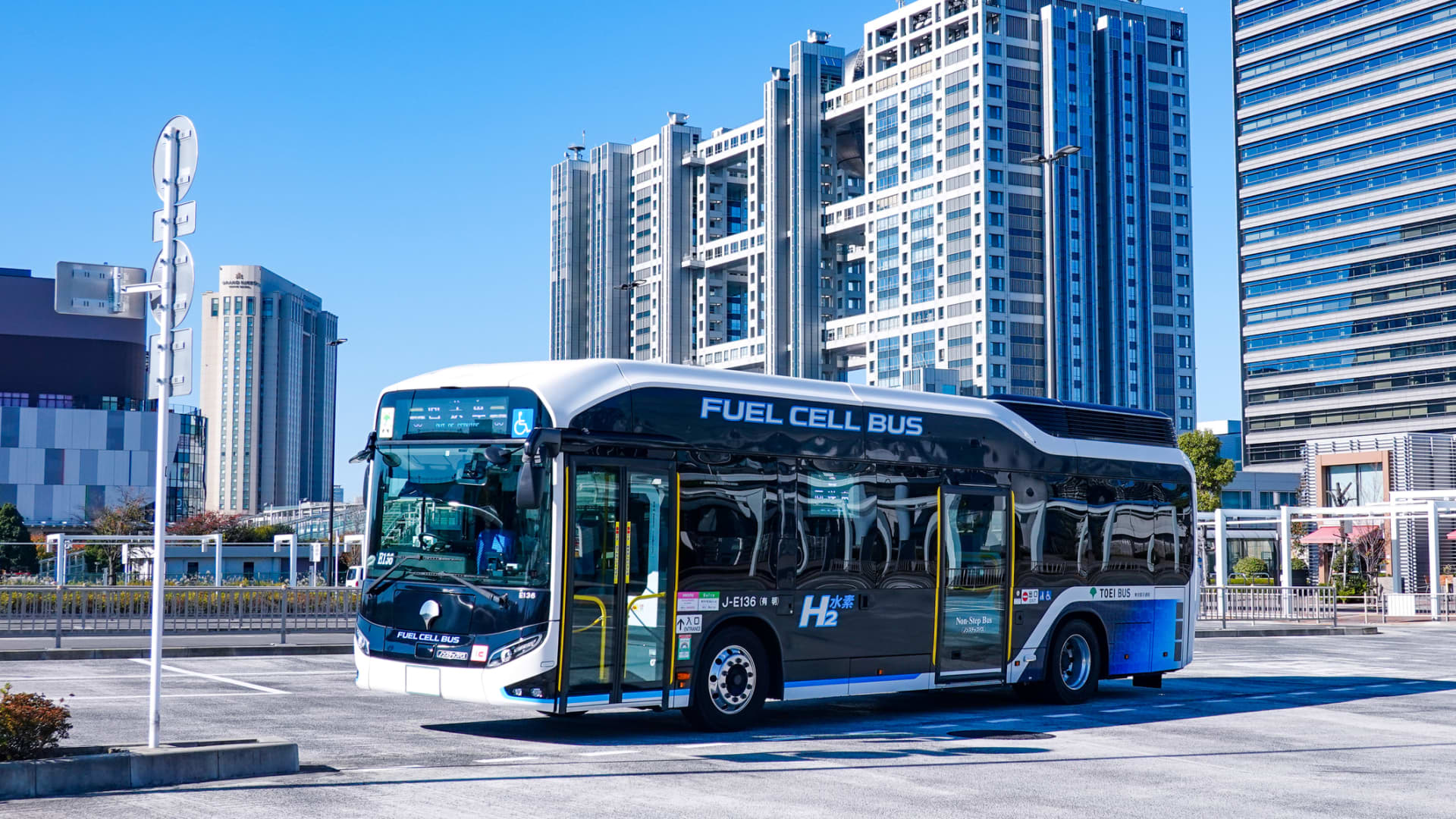After Toyota’s Mirai, the Japanese auto giant zeroes in on buses and heavy-duty trucks

Toyota Motor Europe, CaetanoBus and Air Liquide have signed an agreement related to the development of hydrogen-based transport options, as the race to develop low and zero-emission vehicles heats up.
In a statement Tuesday, Toyota said the deal would aim for what it called “closer cooperation in developing opportunities for hydrogen mobility projects in several European countries.” CaetanoBus is based in Portugal and part of Toyota Caetano Portugal and Mitsui & Co.
The firms are set to focus on a number of areas related to hydrogen, including infrastructure connected to distribution and refueling; low-carbon and renewable hydrogen production; and deploying hydrogen in a range of vehicle types.
Toyota said the initial focus would be on “buses, light commercial vehicles and cars, with a further aim to accelerate the heavy-duty truck segment.”
Toyota started working on the development of fuel-cell vehicles — where hydrogen from a tank mixes with oxygen, producing electricity — back in 1992. In 2014, it launched the Mirai, a hydrogen fuel cell sedan. The business says its fuel cell vehicles emit “nothing but water from the tailpipe.”
Alongside the Mirai, Toyota has had a hand in the development of larger hydrogen fuel cell vehicles. These include a bus called the Sora and prototypes of heavy-duty trucks. As well as fuel cells, Toyota is also looking at using hydrogen in internal combustion engines.
While the Japanese automotive giant looks to push ahead with plans for vehicles that use hydrogen — firms like Hyundai and BMW are also looking at hydrogen — other influential voices in the automotive sector are not so sure.
In June 2020, Tesla CEO Elon Musk tweeted “fuel cells = fool sells,” adding in July of that year: “hydrogen fool sells make no sense.”
In Feb. 2021, Herbert Diess, the CEO of Germany’s Volkswagen Group, also weighed in on the subject. “It’s time for politicians to accept science,” he tweeted.
“Green hydrogen is needed for steel, chemical, aero … and should not end up in cars. Far too expensive, inefficient, slow and difficult to roll out and transport. After all: no #hydrogen cars in sight.”
While Diess and Musk would appear to be wary when it comes to hydrogen’s prospects in cars, their focus on battery electric vehicles puts them in direct competition with other firms like GM and Ford.
The latter’s CEO, Jim Farley, recently said his business planned to “challenge Tesla and all comers to become the top EV maker in the world.”
The drive to find zero and low emission alternatives to diesel and gasoline comes at a time when major economies are laying out plans to reduce the environmental footprint of road-based transportation.
In Europe, for instance, the European Commission, the EU’s executive arm, has proposed a 100% reduction in CO2 emissions from cars and vans by 2035.
On Tuesday, Ford Europe, Volvo Cars and a number of other high-profile businesses signed a joint letter asking EU governments and the European Parliament to give the Commission’s proposal the green light.
The letter called on EU government representatives and MEPs to “put in place an EU-wide phase-out for sales of new internal combustion engine passenger cars and vans (including hybrids) no later than 2035.”
“This should be enshrined into legislation by setting the 2035 fleet-wide CO2 target at 0 gram CO2/km for vehicle manufacturers,” the letter said.



